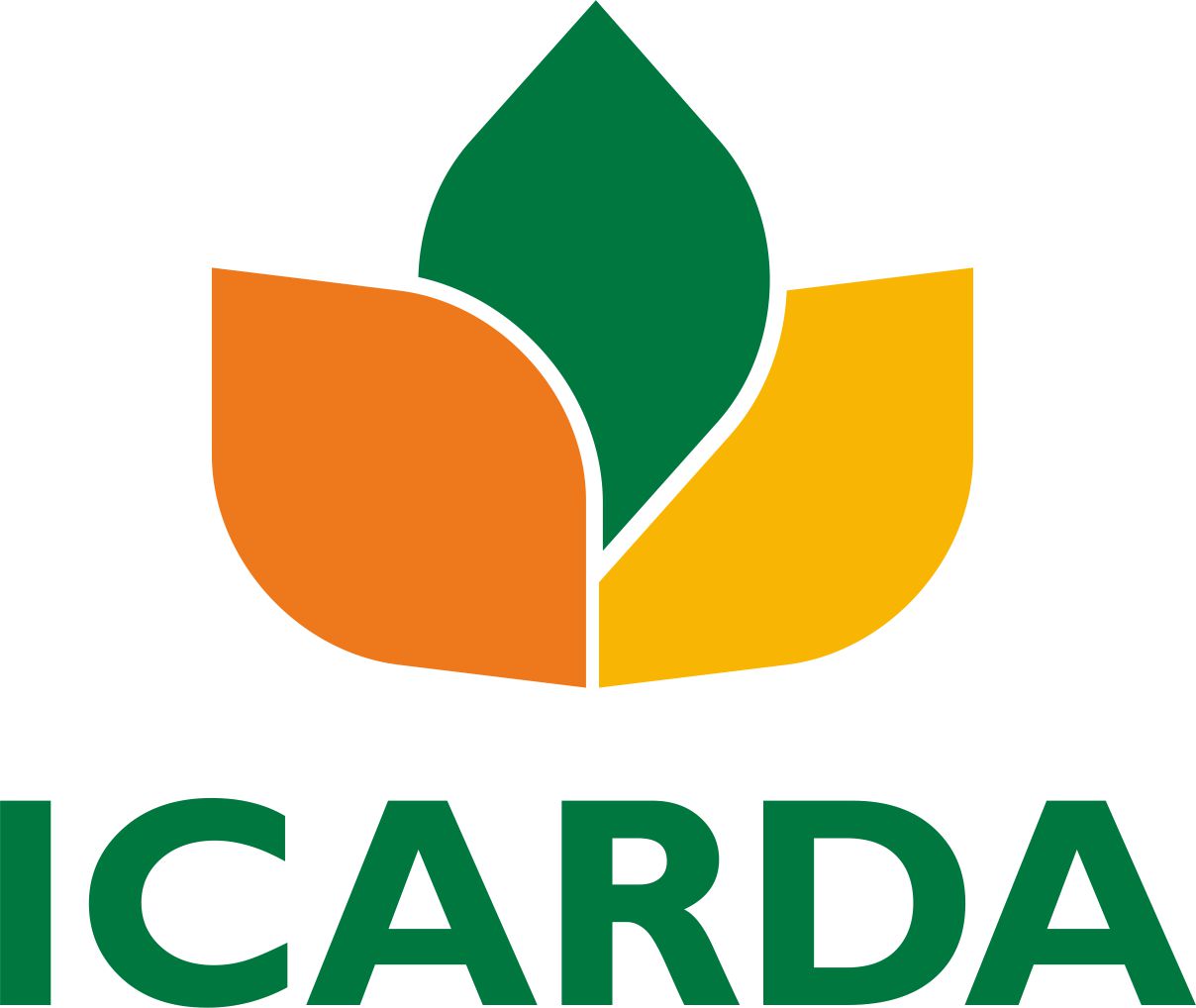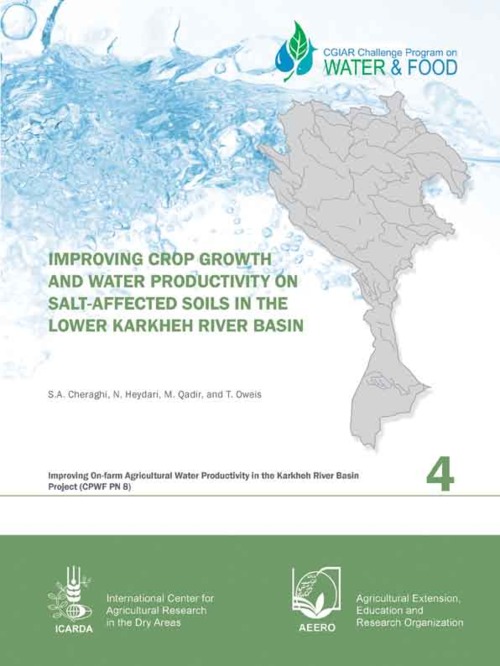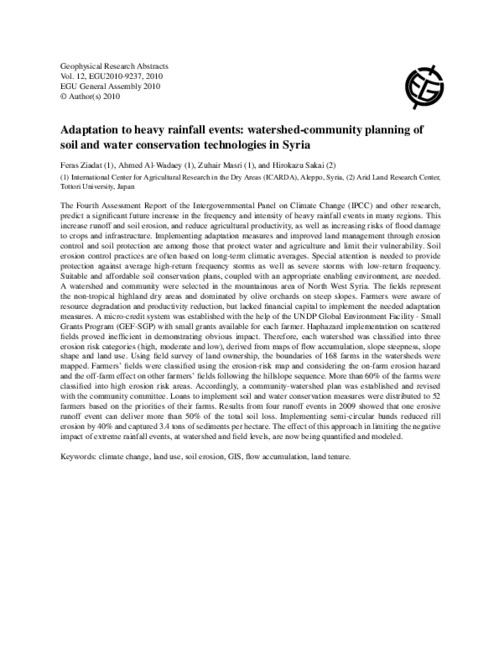Location
The International Center for Agricultural Research in the Dry Areas (ICARDA) was established in 1977. It is one of 15 such centers supported by the CGIAR. ICARDA’s founding mandate to promote agricultural development in the dry areas of developing countries remains highly relevant today.
ICARDA works with a tight focus on the problem-solving needs of resource-poor farmers, achieving this through the in-field delivery of its research outputs. Although global food production has increased by 20 per cent in the past decade, food insecurity and poverty remain widespread, while the natural resource base continues to decline.
International research centers such as ICARDA, which have helped drive previous improvements, continue to deliver new technologies to support sustainable growth in agriculture, and crucially, to work with a wide range of partners to accelerate the dissemination of these technologies.
ICARDA’s biggest strength is its staff – 600 highly skilled men and women from 32 countries. Our research and training activities cover crop improvement, water and land management, integrated crop-livestock-rangeland management, and climate change adaptation.
Other interventions include:
- Water harvesting - supplemental irrigation and water-saving irrigation techniques
- Conservation agriculture methods to reduce production costs and improve sustainability
- Diversification of production systems to high-value crops – horticulture, herbal and medicinal plants
- Integrated crop/rangeland/livestock production systems including non-traditional sources of livestock feed
- Empowerment of rural women – support and training for value-added products.
The ICARDA genebank holds over 135,000 accessions from over 110 countries: traditional varieties, improved germplasm, and a unique set of wild crop relatives. These include wheat, barley, oats and other cereals; food legumes such as faba bean, chickpea, lentil and field pea; forage crops, rangeland plants, and wild relatives of each of these species.
ICARDA’s research portfolio is part of a long-term strategic plan covering 2007 to 2016, focused on improving productivity, incomes and livelihoods among resource-poor households.
The strategy combines continuity with change – addressing current problems while expanding the focus to emerging challenges such as climate change and desertification.
We work closely with national agricultural research systems and government ministries. Over the years the Center has built a network of strong partnerships with national, regional and international institutions, universities, non-governmental organizations and ministries in the developing world and in industrialized countries with advanced research institutes.
THE ‘DRY AREAS’
Research and training activities cover the non-tropical dry areas globally, using West Asia, North Africa, Central Asia and the Caucasus as research platforms to develop, test, and scale-out new innovations and policy options.
Dry areas cover 41 per cent of the world’s land area and are home to one-third of the global population. About 16 per cent of this population lives in chronic poverty, particularly in marginal rainfed areas. The dry areas are challenged by rapid population growth, frequent droughts, high climatic variability, land degradation and desertification, and widespread poverty. The complex of relationships between these challenges has created a "Poverty Trap."
Members:
Resources
Displaying 386 - 390 of 431Improving Crop Growth and Water Productivity on Salt-affected Soils in the Lower Karkheh River Basin
Research Report no. 4 of the CPWF project: Improving on-farm agricultural water productivity in the Karkheh river basin (PN8).
Semi-Detailed Soil Surveys of Merek and Honam Watersheds, Karkheh River Basin, Iran
The study of soils is important for landuse planning, agriculture, and natural resource development programs. Determination of soil characteristics and limitations is one of the most important duties of soil researchers. This report presents a semi-detailed soil survey of Merek watershed in Kermanshah Province, and Honam watershed in Lorestan Province, Iran. It is hoped that the analyses and recommendations will be of value to those interested in the optimum use of Iran’s land and water resources.
Adaptation to heavy rainfall events: watershed-community planning of soil and water conservation technologies in Syria
The Fourth Assessment Report of the Intergovernmental Panel on Climate Change (IPCC) and other research, predict a significant future increase in the frequency and intensity of heavy rainfall events in many regions. This increase runoff and soil erosion, and reduce agricultural productivity, as well as increasing risks of flood damage to crops and infrastructure. Implementing adaptation measures and improved land management through erosion control and soil protection are among those that protect water and agriculture and limit their vulnerability.
ICARDA Annual Report 2009
The dry areas face severe challenges to sustainable development. The biggest challenges – food insecurity, water scarcity, land degradation, and climate change – are closely inter-related. The effects of climate change will be felt globally, but the dry areas will be particularly hard hit. Climate change will exacerbate water scarcity, rainfall variability, and the decline in the natural resource base, and thus could have a profound impact on food security.
Center Commissioned External Review of Integrated Water and Land Management Program of ICARDA
Center Commissioned External Review of Integrated Water and Land Management Program of ICARDA.
ICARDA’s Response to the Recommendations of the Center Commissioned External Review of the Integrated Water and Land Management Program in ICARDA March 2010







